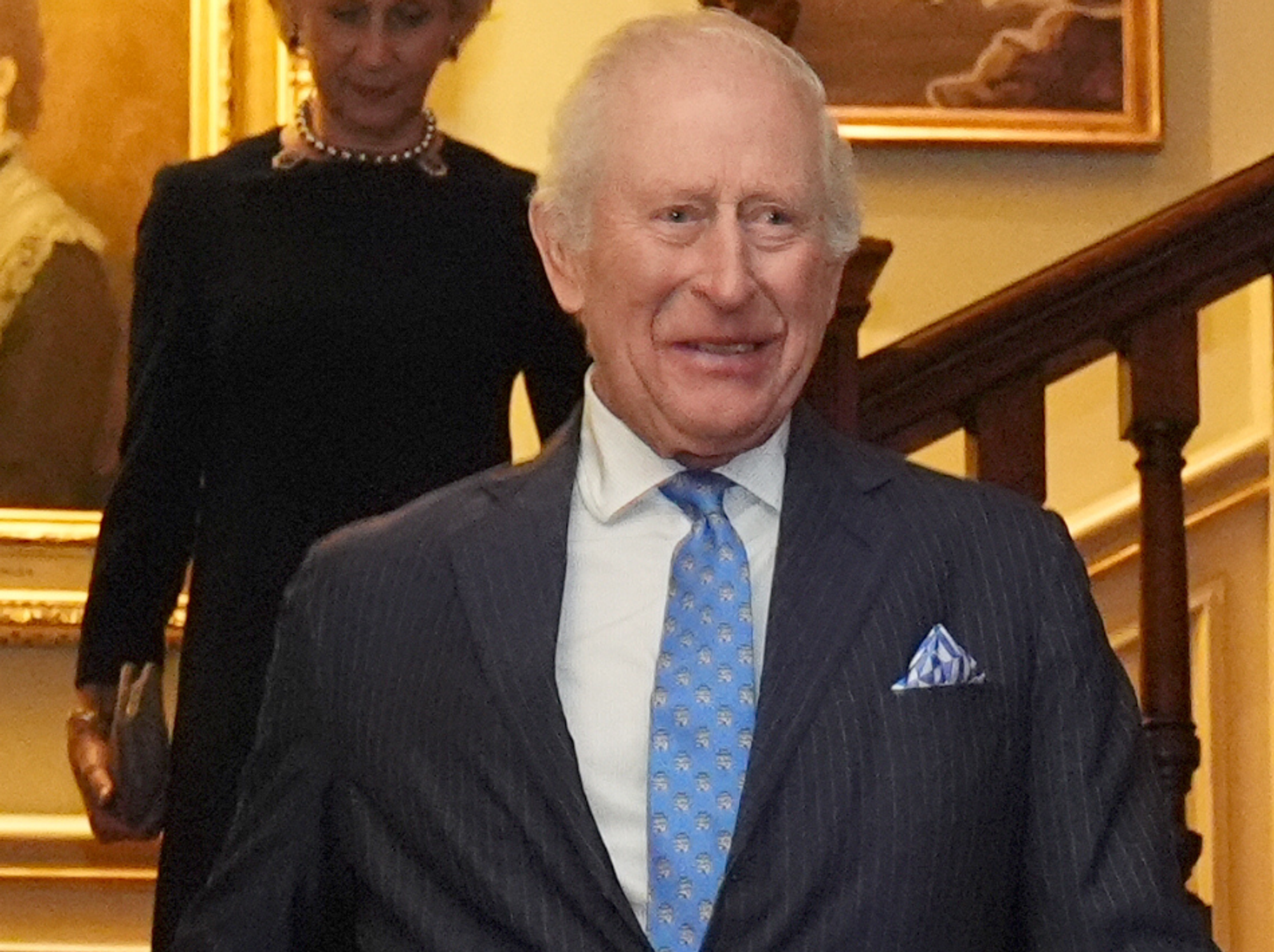Doctor Q&A: What are the best supplements for lowering high cholesterol? Dr Renee Hoenderkamp answers all your burning questions

Celebrity NHS doctor Renée Hoenderkamp addresses GB News members' burning questions | Doctor Renée Hoenderkamp

In this week's Q&A, celebrity NHS Doctor Renée Hoenderkamp looks at the best supplements for lowering high cholesterol levels, how soon you can exercise after spinal surgery and what losing your sense of smell can signify
Don't Miss
Most Read
Latest
Your body is a temple and should therefore be worshipped accordingly.
Unfortunately, simply reading scripture won't summon a disease-free body.
You have to work at it. That's where our resident doctor comes in.
Each week, she provides our readers with practical tips to sail through life as smoothly as possible, whether it's getting symptoms checked out or modifying your lifestyle.
Last week, she gave her take on the best drink for reducing high blood pressure, what heavy periods signify and how to alleviate chest pain.
This week she turns her attention to the best supplements for lowering high cholesterol levels, how soon you can exercise after spinal surgery and what losing your sense of smell can signify.
Remember, you can submit your questions to health@gbnews.uk and Doctor Hoenderkamp will be on hand to answer them every Friday.
Don't forget to check out Doctor Hoenderkamp 's Instagram @drhoenderkamp where she provides a video rundown of the responses.
It's important to remember that the advice given below is general and not individual and you should always seek individualised health care from a doctor.
With that aside, see below Doctor Hoenderkamp's answers to GB News members' burning questions.
I have had spinal surgery for a back injury and am desperate to start exercising again. Would it be totally out of the question to start running/jogging again? Your advice would be much appreciated. I look forward to hearing from you.
This is a subject that I get asked lots about because back pain is a common issue at GP and then when it gets to the point of surgery, we are the port of call afterwards when surgeons are hard to contact! So I did today what I often do, I asked him indoors for an expert view as he is one of those surgeons.
According to medical opinion, it depends on the surgery but as a guide, if you have had:
- A discectomy (removal of a prolapsed disc) then wait two months but maintain gentle mobilisation during that two months.
- A decompression (widening of the spinal canal to allow the spinal cord to pass through without being squashed), wait three months but still mobilise gently throughout.
- A Fusion - speak to your surgeon as the degree of surgery will vary dramatically.
Having said all of the above, be guided by pain – if you have increased pain which doesn’t resolve after exercise, then it's too much.
Additionally, there is a very good YouTube channel, written by the spinal surgeon that you can use for mobilisation and to help back issues at any time.
Enjoy and good luck.
What are the best supplements for lowering high cholesterol? My doc recommends statins but seen interesting research online
I think cholesterol reduction naturally versus statins is one of the most common questions I get asked. Certainly, diet and other lifestyle measures can reduce cholesterol once it has climbed and I am a doctor who would much prefer to tackle most issues this way and certainly exhaust all natural avenues before reaching for the medication. So lets have a look at all approaches.
Firstly, don’t eat ultra-processed foods and make sure that your diet comprises the following:
- Eat heart-healthy foods
- Reduce saturated fats.
- Eat foods rich in omega-3 fatty acids.
- Eliminate trans fats. Trans fats, sometimes listed on food labels as "partially hydrogenated vegetable oil"
- Add whey protein.
- Increase soluble fibre.
- Exercise / increase your physical activity
- Work up to at least 30 minutes of exercise five times a week or vigorous aerobic activity for 20 minutes three times a week.
- Quit smoking - Within a year of quitting, your risk of heart disease is half that of a smoker
- Lose weight
- Drink less alcohol – less than 14 units a week and less
Now let's turn to natural solutions outside of diet and exercise worth considering. There are claims for so many different herbs/supplements that I had a look to see if there was RCT evidence for any and found a systemic review and the following herbs showed decreases in Total cholesterol (TC):
- Guggul: the five studies that measured TC found reductions of 10 to 27 per cent in comparison with baseline measures.
- Artichoke (two studies): one study showed reductions in TC of 18.5 per cent and 8.6 per cent for artichoke and placebo, respectively.
- Fenugreek Seeds: A statistically-significant reductions in TC of between 15 and 33 per cent was demonstrated in five studies.
- Red yeast rice (four studies): there were statistically-significant reductions in TC of 16 to 31 per cent, compared with placebo or control or baseline.
Overall, there is plenty you can do to lower cholesterol via diet, exercise and potentially herbal/natural remedies. Some of this will of course be limited by genetics but if you can make the lifestyle changes suggested above, your overall health will benefit without doubt so it’s a win-win situation.
I've been experiencing loss of smell or more specifically it's changing. Some things do not smell like they used to while other things are becoming more pungent. What could these olfactory changes mean?
When smell changes or disappears, it can be a minor health issue that resolves but can indicate more serious issues.
Sense of smell issues increase as people age, and affect men than women. Some estimates suggest that a quarter of men ages 60–69 have a smell disorder, compared to just over a tenth of women in that age range.
There are four main smell changes that are seen:
- Hyposmia: reduction in the ability to detect odours
- Anosmia: a complete inability to detect odours
- Parosmia: changes in the normal perception of odours, such as when the smell of something familiar is changed, or experiencing a normally pleasant smell as offensive
- Phantosmia: Smelling an odour that isn’t there
Smell disorders have many causes, with some more obvious than others. Most people who develop a smell disorder have experienced a recent illness or injury. Common causes of smell disorders are:
- Ageing
- Smoking
- Sinus and other upper respiratory infections
- Polyps
- Head injury
- Dental problems
- Hormonal disturbances
- Exposure to chemicals, such as insecticides and solvents
- Numerous medications, including some common antibiotics and antihistamines
- Radiation for treatment of head and neck cancers
- Conditions that affect the nervous system, such as Parkinson’s disease or Alzheimer’s disease.
The thing I would say to reassure you is that common things are common and it is probable that you have had a viral infection that has affected your smell and over time it will improve. There are people who lost their smell for extended periods after covid (I lost mine for two to three weeks) and for most it comes back and there are smell challenges you can use to help in the form of olfactory retraining which involves smelling specific substances such as clove, lemon, eucalyptus and rose for 15 seconds, twice a day for several weeks or several months.
However, it is important, if this has been going on for more than two to three weeks, to get checked over, just in case it is another one of the many causes above, and the sooner the better as early treatment is always better than late.
I hope that this helps










